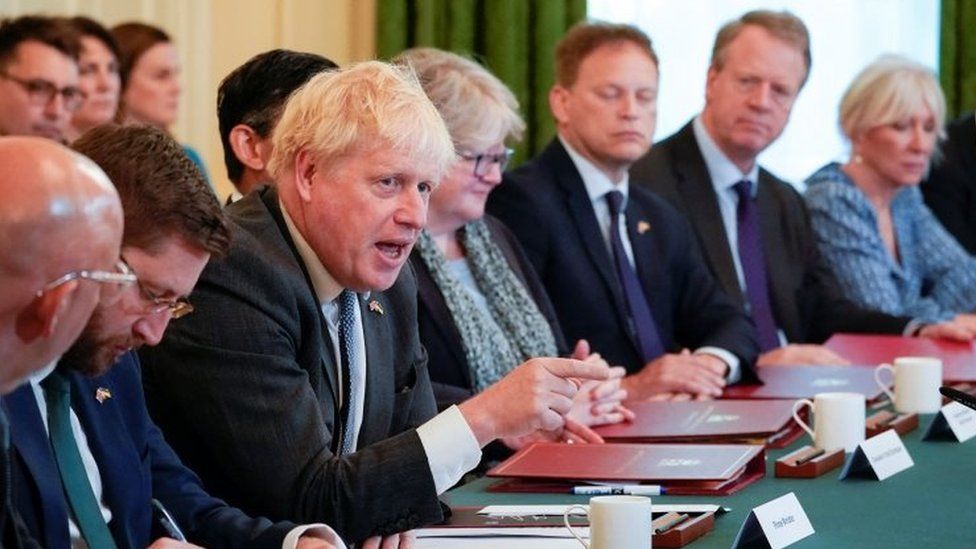ARTICLE AD BOX
 Image source, Reuters
Image source, Reuters
Prime Minister Boris Johnson has insisted his Partygate fine did not amount to a breach of ministerial rules
Boris Johnson's ethics adviser says it is "reasonable" to suggest the prime minister may have breached the ministerial code after being fined for attending a lockdown party in No 10.
Lord Geidt did not deny he considered resigning over Mr Johnson's response to the fine by police.
Last month, Lord Geidt urged the PM to explain why he had not broken the code.
Speaking to MPs, he said he was "glad" the PM had now addressed "things about which I was frustrated".
Last month Mr Johnson's government made changes to the ministerial code, which outlines the conduct rules ministers must follow, including the "overarching duty" on them to comply with the law.
There has long been an expectation that ministers should quit their role in government if they are found to have broken the code.
The prime minister is responsible for enforcing the code, based on advice from his standards adviser, Lord Geidt, who investigates potential breaches.
On Tuesday, Lord Geidt appeared in front of the Commons Public Administration Committee to discuss the recent changes to the code and other issues related to his role.
The peer told the committee of MPs he believed he had "new powers" to initiate investigations of potential breaches of the code.
Updated guidance on his role says he still has to "consult the prime minister who will normally give his consent" for an investigation. Previously, Lord Geidt had to wait until asked by the prime minister to start an investigation.
During the hearing, SNP MP Ronnie Cowan asked Lord Geidt if he would use his new powers to initiate an investigation into the prime minister's fine.
He said: "I think it's reasonable that some - and indeed many people had written to me making this point - it's reasonable to say that, perhaps a fixed penalty notice and a prime minister paying for it, may have constituted not meeting the overarching duty under the ministerial code, of complying with the law."
'A tin of whitewash'
Lord Geidt said he had never sought to open his own investigation into whether there were breaches of the code at parties in Downing Street during the pandemic.
Last month, in an annual report on ministers' interests, Lord Geidt there was a "legitimate question" over whether the PM's fine amounted to a breach of the code.
Mr Johnson responded in a letter, insisting "there was no intent to break the regulations" and "I did not breach the code".
Lord Geidt said he had asked the prime minister "to speak up for his own conduct" and was satisfied he had done so in the letter.
Image source, Parliament TV
Image caption,Lord Geidt published his annual report on ministers' interests last month
One committee member, Labour MP John McDonnell, suggested to Lord Geidt that his role as the PM's adviser was "little more than a tin of whitewash".
In reply, Lord Geidt said "how can I defeat the impression that you are suggesting of a cosy, insufficiently independent relationship? It is very hard."
And Lord Geidt conceded that his role was not truly independent, saying, "I am asset of the prime minister" rather than a "free-orbiting adviser with a different source of authority".
The changes to the code follow a review by advisory body the Committee on Standards in Public Life, which made a series of recommendations for reforms in a report.
For the first time, the code introduced the idea of a "minor" breach and sanctions "which the prime minister may decide to issue in a given case".
But Lord Geidt contested the suggestion that the code had been "watered down".
"That sort of interpretation is not quite correct," he said, calling the reforms "fair and proportionate".

 2 years ago
26
2 years ago
26








 English (US) ·
English (US) ·